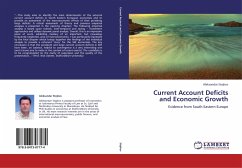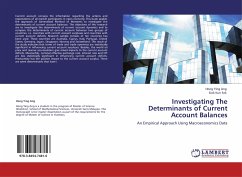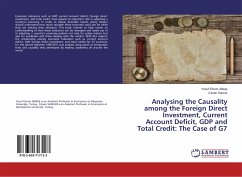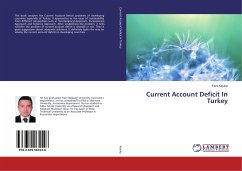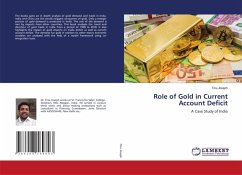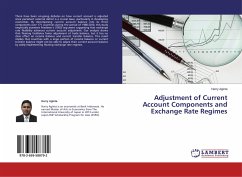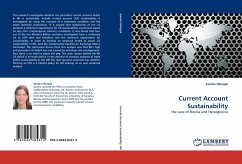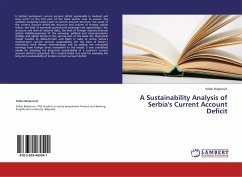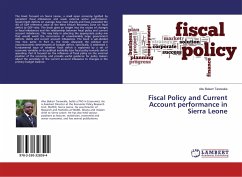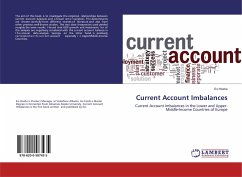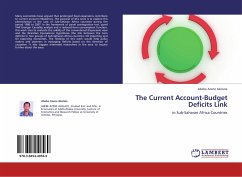
The Current Account-Budget Deficits Link
in Sub-Saharan Africa Countries
Versandkostenfrei!
Versandfertig in 6-10 Tagen
32,99 €
inkl. MwSt.

PAYBACK Punkte
16 °P sammeln!
Many economists have argued that prolonged fiscal expansions contribute to current account imbalances. The purpose of this work is to explore this phenomenon in the case of Sub-Saharan Africa countries during the period 1980 to 2007. In the framework of panel cointegration test, panel VAR Granger Causality analysis and a reduced-form consumption function, this work tries to evaluate the validity of the conventional (Keynesian) view and the Ricardian Equivalence Hypothesis (the link between the twin deficits) in two groups of Sub-Saharan Africa countries: Oil importing and Oil exporting economi...
Many economists have argued that prolonged fiscal expansions contribute to current account imbalances. The purpose of this work is to explore this phenomenon in the case of Sub-Saharan Africa countries during the period 1980 to 2007. In the framework of panel cointegration test, panel VAR Granger Causality analysis and a reduced-form consumption function, this work tries to evaluate the validity of the conventional (Keynesian) view and the Ricardian Equivalence Hypothesis (the link between the twin deficits) in two groups of Sub-Saharan Africa countries: Oil importing and Oil exporting economies. The findings of this work would help policy makers and planners in managing deficits based on the direction of causation. It also triggers interested researchers in the area to inquire further about the issue.



